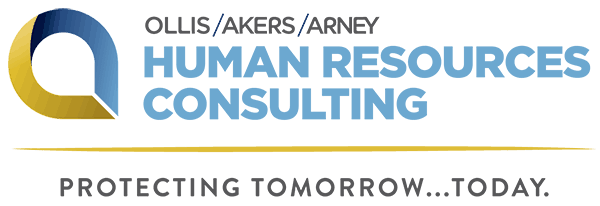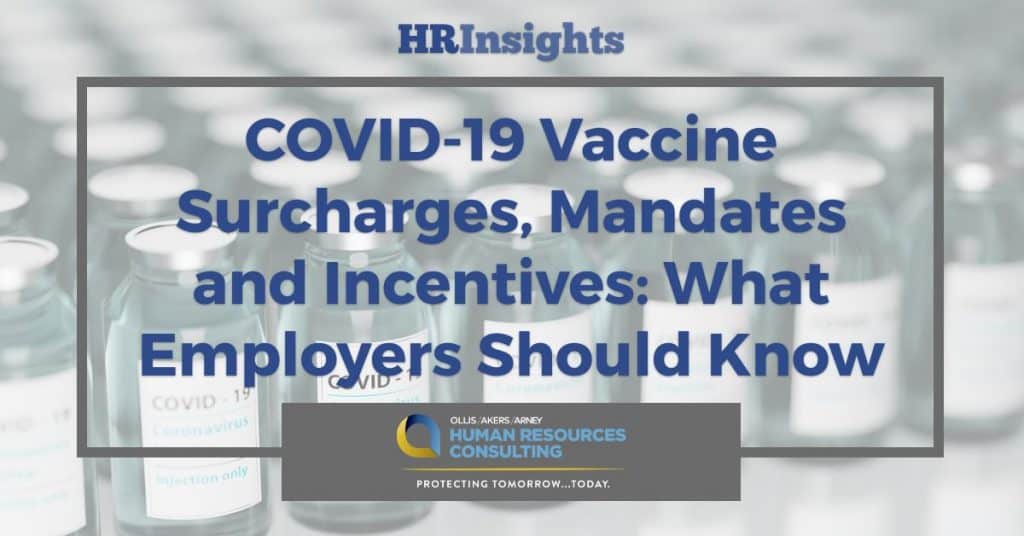COVID-19 vaccinations are a highly contentious topic in America. Many U.S. adults still haven’t gotten the shot despite the Food and Drug Administration’s recent (FDA) full approval of the Pfizer-BioNTech vaccine.
This reluctance is seen as a problem by health experts, who contest that vaccination is the most effective way to control the widespread coronavirus Delta variant. It’s also a problem for employers wishing to maintain uninterrupted operations and keep employees healthy.
So, if an employer wants a vaccinated workforce but is dealing with vaccine skepticism, what are their options? This article explores this complicated situation and discusses the multitude of choices facing employers.
The Case Against Mandating Vaccines
Requiring a COVID-19 vaccine as a condition of employment is a controversial subject. To some, vaccine mandates may seem draconian; to others, they may seem like the only way to return workplace operations to a pre-COVID-19 level.
Even with the best intentions, vaccine mandates can potentially reflect poorly on an organization. One major concern is that it could alienate workers or prospective employees. If someone is opposed to the COVID-19 vaccine, for whatever reason, they will no doubt try to avoid working for a business that mandates it.
In a tight labor market, the inability to find talent could sink a company faster than having workers fall ill due to COVID-19. Yet, employee wellness is still of critical concern to employers. How can organizations protect workers while still respecting employees’ rights to make their own health choices? For many, the answer has been to encourage—rather than to mandate—vaccines through various methods.
What Are Companies Doing?
While many employers have avoided mandating COVID-19 vaccines, some have taken the opposite approach. Notably, United Airlines, Goldman Sachs, Google, Walmart and even the federal government, among others, have introduced vaccine mandates as conditions of employment for at least some of their workers.
Additionally, some hospital groups have been firing workers who won’t comply with their requirements, demonstrating how important some businesses consider COVID-19 vaccination.
While these policy decisions coming from large organizations are consequential, they are still outliers at the moment. However, that will likely change by the end of 2021. According to a recent survey from Willis Towers Watson, over half (52%) of employers said they will be implementing some form of vaccine mandate for at least some of their employees. Currently, many organizations have
simply encouraged vaccination while considering their best routes forward, including the use of incentives or penalties.
Incentives in Action
Incentives are nothing new to employers; these perks can include gift cards, extra time off, raffle prizes or cash. Some workplaces are using incentives to encourage vaccinations among their employees—get a shot, receive a prize.
The use of incentives indicates how far an organization is willing to go to get employees vaccinated while still falling short of a mandate. Walmart is currently offering $150 to their workers who get the shot; Cigna is offering $200. But they’re not the only ones paying up. Kroger, McDonald’s, Aldi, Target and other large retailers are providing incentives in exchange for COVID-19 vaccinations. Some of these companies are offering cash, paid time off or funds to pay for transportation to a vaccination site.
Even state governments are trying to incentivize their citizens into getting a COVID-19 vaccine. Many states have introduced lotteries where anyone who gets a shot is entered to win thousands of dollars, tickets to sporting events, vacations or other prizes.
Penalties in Action
Incentives aren’t an employer’s only option when it comes to encouraging vaccination. Some have chosen to use the stick instead of the carrot, issuing penalties to employees who refuse to get vaccinated.
Most recently, Delta Air Lines announced steep penalties for unvaccinated workers. Existing employees aren’t required to be vaccinated as a condition of employment (new ones are), but they face significant disadvantages for refusing the shot. Specifically, unvaccinated employees must pay a $200 monthly surcharge for health benefits and undergo weekly COVID-19 testing. Additionally, the company will not provide pay protection to unvaccinated workers who contract COVID-19.
Delta Air Lines’ CEO said this surcharge will help offset the $50,000 the company spends, on average, for COVID-19-related hospitalizations. And this line of thinking seems to be shared among other employers. According to Mercer, more and more businesses are considering using surcharges to get employees vaccinated.
Legal Considerations
At this point, it may seem like there are three straightforward options available to employers who want vaccinated workers:
- Mandate vaccination
- Incentivize vaccination
- Penalize unvaccinated workers
Yet, as simple as these options may seem, each comes with unique legal implications.
Vaccine Mandates
Vaccine mandates aren’t anything new in the United States. For instance, children must be inoculated before they can attend school. It’s generally agreed upon that employers are legally allowed to require vaccinations among employees, especially when employees must work closely together or alongside a high-risk population—still, state laws may differ on the subject, so employers will want to check with local legal counsel.
Regarding COVID-19 vaccinations, a mandatory vaccination policy must meet the Americans with Disabilities Act (ADA) standard of “job-related and consistent with business necessity.” Further, Title VII of the Civil Rights Act (Title VII) and the ADA require an employer to provide reasonable accommodations for employees who, because of a disability or a sincerely held religious belief, practice or observance, do not get vaccinated for COVID-19 unless providing an accommodation would pose an undue hardship on the employer’s business operation. The analysis for undue hardship will differ depending on whether the accommodation is for a disability or for religion. An employer introducing a COVID-19 vaccination policy and requiring documentation or other confirmation of vaccination should contemplate notifying all employees that the employer will consider requests for reasonable accommodations based on disability or religion on an individualized basis.
Vaccine Incentives
Employers are generally allowed to offer incentives, such as cash payments, gift cards or other rewards, for getting vaccinated. Under Equal Employment Opportunity Commission (EEOC) guidance, employers can offer an incentive to employees to voluntarily provide documentation or other confirmation of a vaccination received on their own from a third-party provider. However, if the employer or its agent administers the vaccination, the employer can only offer an incentive that is not so substantial as to be coercive. This is because vaccinations require employees to answer pre-vaccination disability-related screening questions, so a very large incentive could make employees feel pressured to disclose protected medical information, therefore running afoul of the ADA.
Unfortunately, the EEOC has not clarified how large of an incentive would constitute coercion. Employers considering vaccination incentives will want to keep an eye out for emerging government guidance.
Vaccine Penalties/Surcharges
Levying penalties, specifically premium surcharges, against unvaccinated workers is a complex and rapidly evolving issue. Such a penalty would likely be implemented through a wellness program subject to unique rules under the Health Insurance Portability and Accountability Act (HIPAA), the Affordable Care Act (ACA) and more. As such, employers must be careful to comply with all applicable laws. At the time of this writing, the federal government has not issued specific guidance on surcharges issued to unvaccinated workers. That alone is a major sign that employers should proceed cautiously.
Employers should consider a wide range of factors when determining whether surcharges are appropriate for their employees, including but not limited to:
- ADA and HIPAA nondiscrimination rules
- ACA plan affordability thresholds, as applicable
- Offering reasonable alternatives to those who cannot be vaccinated for reasons protected by law
Additionally, penalties beyond surcharges, such as withholding pay protection, may be subject to workplace laws. This is a highly complex and developing topic. Employers are encouraged to consult with legal counsel before moving forward with penalties or surcharges related to COVID-19 vaccinations.
Strategies for Employers
Health experts agree that getting workers vaccinated is a worthwhile effort. Ultimately, higher vaccination rates among employees can lead to many benefits. Healthier employees mean lower health care costs and fewer hospitalizations, which can be extremely expensive, as Delta Air Lines’ CEO pointed out. More vaccinated workers also mean a smaller chance of interrupted operations due to a COVID-19 outbreak.
Employers looking to encourage vaccination (without direct incentives) can consider the following strategies:
- Educate employees about the importance of vaccines through multichannel communications (e.g., posters, videos, articles and stickers).
- Cover the costs of vaccination for employees, including travel expenses and time away from work.
- Appeal directly to employees, using plain language and real-world stories of how COVID-19 vaccines can help communities.
- Focus efforts on vaccine skeptics to help win them over.
- Solicit and answer employee questions regarding COVID-19 vaccines, their efficacy and their importance.
- Arm managers with resources to help them address employees who come to them with vaccine questions.
- Encourage C-suite leaders to share their own stories about why they got vaccinated to help inspire employees to do so.
While surcharges are another option, they should be considered with caution—at the very least until government agencies issue further guidance. With that in mind, employers may run into fewer legal complications by sticking to incentives rather than penalties. Of course, as with any incentive program, employers must be careful to comply with EEOC regulations.
Conclusion
Getting employees vaccinated is a top priority for many organizations. In fact, it’s so important that companies are charging unvaccinated employees fees in some cases and firing them in others.
However, any vaccine-related workplace policy comes with inherent legal risks. Employers considering any vaccine policy—whether it’s related to incentives, penalties or mandates—should first consult with legal counsel. Reach out to Ollis/Akers/Arney Insurance & Business Advisors for more workplace resources, including employee communications to help encourage vaccination.
Our HR Consulting Team
This HR Insights is not intended to be exhaustive nor should any discussion or opinions be construed as professional advice. © 2021 Zywave, Inc. All rights reserved.






